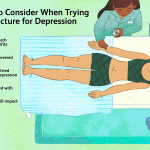Table of contents
The Benefits of Music Therapy as Part of Your Healing Journey
Music therapy is a form of psychotherapy that uses music, rhythmic movements, and sound to influence and support healing. It has been used in a range of contexts and settings, including clinical settings, schools, hospices, prisons, and community settings. It is an increasingly popular modality in the world of holistic health, as it is thought to provide a safe, non-invasive way of connecting to the body, mind, and spirit on multiple levels.
What Is Music Therapy?
Music therapy is an evidence-based practice that involves a trained music therapist engaging a person or a group of people in a therapeutic session. The music therapist creates an environment where the person can explore personal, emotional, physical and mental issues through musical activities. This therapeutic experience can help to:
- Reduce feelings of stress and anxiety
- Manage chronic pain
- Improve brain functioning and cognitive processes
- Reduce symptoms of depression
- Through the use of music, motivate and encourage personal growth
- Address emotional and social issues
- Support physical rehabilitation
- And provide general well-being.
Music therapy is also used to help individuals with developmental, emotional, and physical disabilities achieve their goals and objectives. Music therapists use their knowledge of music, psychotherapy, and neuroscience to create individualized treatments.
The Benefits of Music Therapy
Music therapy is thought to impact a person’s physical, emotional, and spiritual health. Studies have shown that when used as an adjunct to traditional therapy, music therapy can significantly reduce stress, anxiety, and depression; as well as decrease pain, muscle tension, and fatigue. Furthermore, research has suggested that music therapy can play a role in the physical rehabilitation process.
Other benefits of music therapy include:
- Provide an outlet for individuals to express their emotions
- Improve communication, interpersonal, and problem-solving skills
- Develop coordination and motor skills
- Increase self-esteem and confidence
- Decrease aggression, frustration, and impulsivity
- Reduce symptoms of PTSD (Post-Traumatic Stress Disorder)
- And reduce the need for medications.
How Music Therapy Can Help With Healing
Music therapy can be a helpful and powerful tool in the process of healing. To begin, the therapist creates an environment which is supportive and non-judgmental, understanding, and reflective. From here, the therapist and patient may work together to work through unresolved feelings, develop self-awareness and insight, and make beneficial lifestyle changes. It can also be beneficial in helping to let go of unhelpful and negative thought patterns, cultivate creativity, and ultimately regain a sense of hope for the future.
Music therapy can also be helpful in the process of grief and bereavement, providing a safe space for individuals to express their sadness and grief with music. By expressing fear, anger and other strong emotions using sound, movement, and music, individuals can begin to put things into perspective and can start to accept and move on.
Music Therapy as Part of Your Healing Journey
Music therapy can be an effective modality for individuals to connect with themselves and to heal. As the body, mind, and spirit are all intertwined, music therapy can be a powerful tool in bringing them into balance. By providing a safe and nurturing environment, music therapy can support the individual on their journey to self-awareness, well-being, and transformation. If you feel like music therapy may be beneficial for you, it is important to find an experienced, qualified music therapist to work with.
Doing so may help you create a healthier, happier state of being, and ultimately result in positive changes in your life. Everyone deserves to heal, and music therapy may be a gentle and supportive way to do so.


